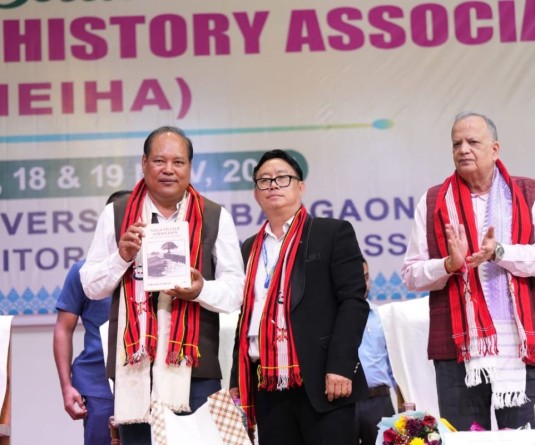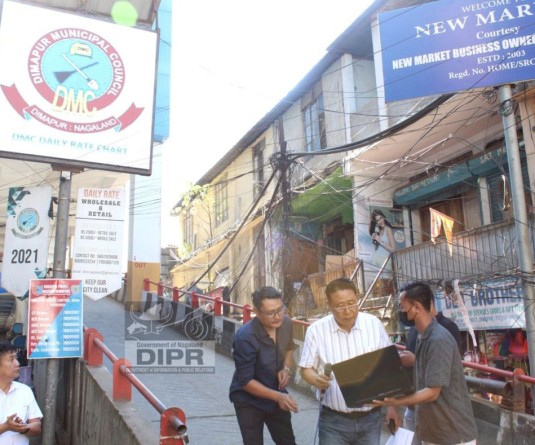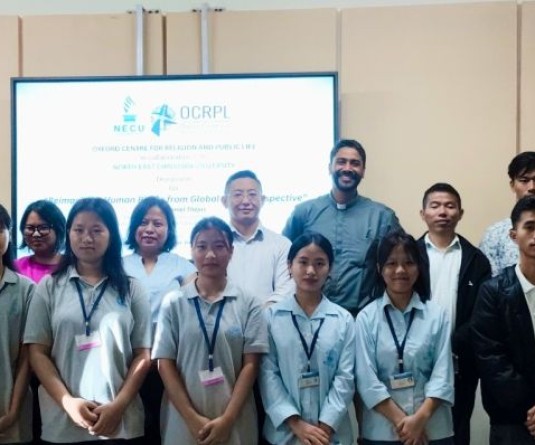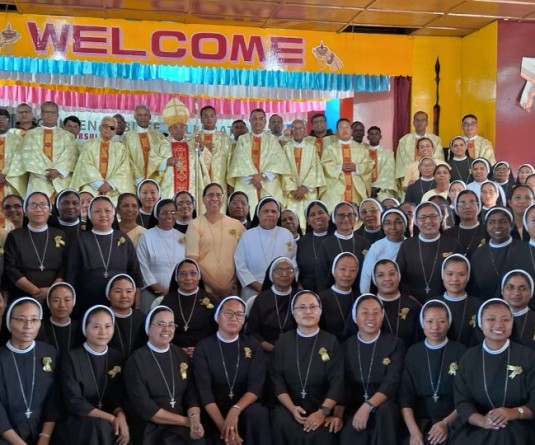The NPMHR and HRLN at a workshop on ‘Human Rights in the Naga Context: Then and Now’ on Saturday, October 28, in Kohima. (Morung Photo)
Morung Express News
Kohima | October 28
The Naga People’s Movement for Human Rights (NPMHR) held a workshop on ‘Human Rights in the Naga Context: Then and Now’ on October 28 at Eastgate Hotel here.
Hoping to engage participants on the issue of human rights in the Naga context from the past and its relevance in the present day, the workshop emphasized on the legal perspective of human rights. The resource persons for the workshop were Neingulo Krome, Secretary General, NPMHR and Advocate Kezhosano Kikhi, Coordinator, Human Rights Law Network (HRLN), Nagaland Unit.
Then and Now
In the past human rights violations in Naga areas were often synonymous to military atrocities, however in the present day Nagaland, grave human rights violations are being carried out by the State on its own people by the people in power. These violations range from structural violence in the form of poverty, to denial of people’s right to basic roads and services.
Providing a brief history of NPMHR Secretary General, Neingulo Krome, stated that the movement came into being at one of the most brutal phases wherein innocent civilians were killed, tortured and maimed for life. Narrating stories of the various tortures, Krome noted that these violations emerged with the Naga’s demand for the basic right to co-exist as a people.
Dealing on human rights violation in the present day Nagaland, Kezhosano Kikhi cited several aspects of violations such as socio-economic rights, gender rights, and educational rights, right to basic healthcare, child rights and protection.
Focusing on the concept of inequality and the growing socio-economic disparity in Nagaland, Kikhi viewed that the gravest human rights violations are meted out on the weakest and poorest sections in the society. “It is always the poor whose rights are violated, it is always the poorer communities who are victims, and imprisoned. You will never see any of the politicians or capitalists behind bars although they are the biggest perpetrators of human rights violations,” said Kikhi.
Kikhi also maintained that the concept of gender equality is almost non-existent in Nagaland. Basic women’s rights are violated directly and indirectly and sometimes subtly; the society has not reached the state where they are aware of violations. “The discourse of Human Rights violation is yet to reach a standard where we are yet to accept the violation,” asserted Kikhi.
On the issue of women’s reservation, Kikhi pointed out that asking for reservation is not because of the women’s incapability but for equal power sharing and affirmative action.
On child labour, Kikhi pointed out the deliberate negligence of child labour which needs to be taken up seriously among Nagas.
Stressing further on the quality of health services in Nagaland, Kikhi pointed out the delay or almost non-existent basic health services. Villages continue to be inaccessible to medical health, district hospital do not have basic infrastructure and in most of these negligence, women and children fall victim.
“With the kind of conditions we are living in, we are not talking about standards here but we are talking about basics. These are all grave human rights violation,” said Kikhi.
Discoursing further on women’s health, where the HRLN has worked extensively on, Kikhi pointed out that many maternal deaths and infant mortality has occurred in recent years with no data or research done on such cases. Even on the case of immunization, the young lawyer pointed out that often facts and data are fabricated.
“These gaps of mortality are not being identified and even if identified it is not made known,” remarked Kikhi.






